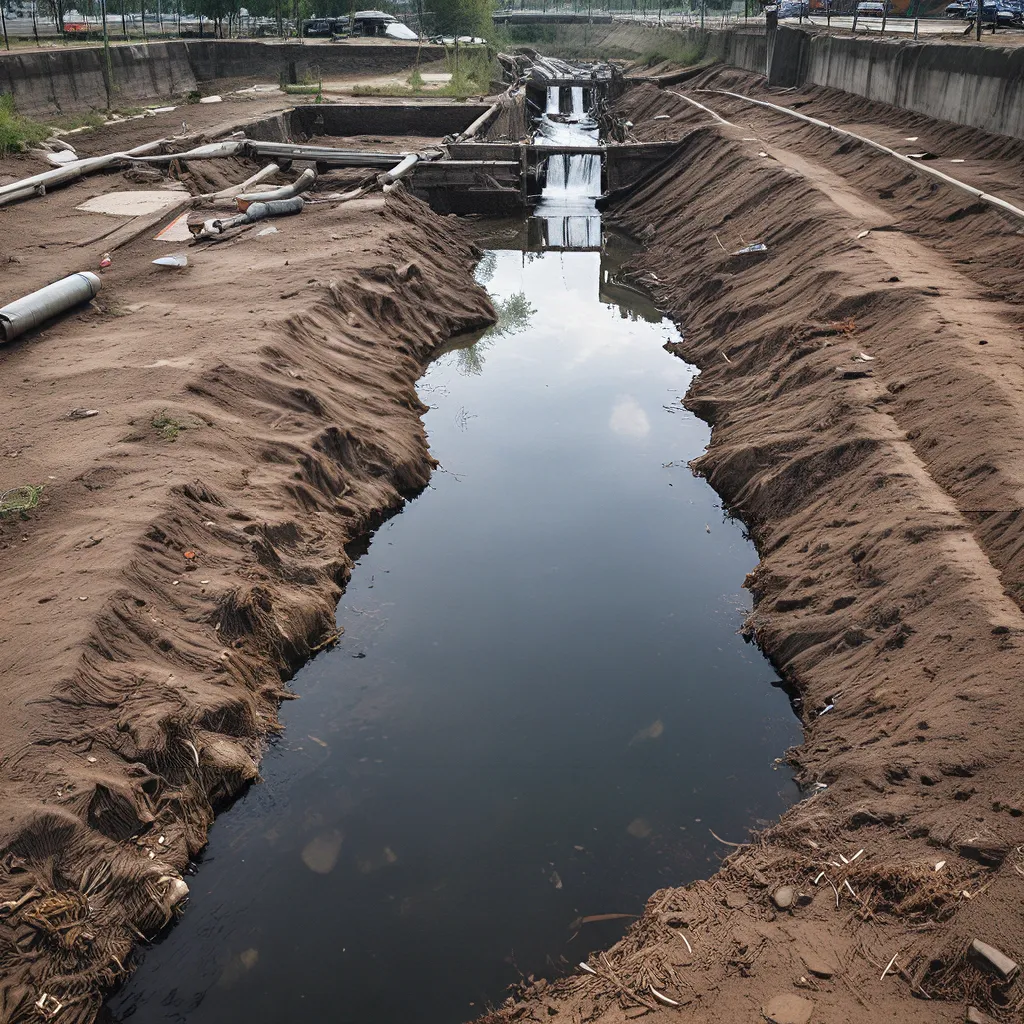
As someone deeply passionate about public health and the innovative ways we can harness data to safeguard our communities, I’m thrilled to dive into the fascinating world of wastewater-based epidemiology. This emerging field holds the potential to revolutionize the way we monitor and respond to emerging public health challenges, and I can’t wait to share what I’ve learned with you.
Uncovering the Secrets in Our Sewers
You know, it’s funny – we often take for granted the complex network of pipes and treatment facilities that keep our communities running smoothly. But buried beneath the surface, quite literally, lies a treasure trove of information that can provide early warning signs of impending public health threats.
See, our wastewater is like a real-time snapshot of the overall health of a population. It’s a direct reflection of the substances, pathogens, and even genetic markers that we excrete on a daily basis. By analyzing this wastewater, researchers and public health officials can detect the presence of emerging infectious diseases, track the spread of drug use, and even identify potential environmental contaminants – all before these issues become full-blown crises.
Studies have shown that wastewater-based epidemiology can provide an early warning system for public health threats, allowing us to respond more quickly and effectively. It’s like having a crystal ball that peers into the future of our community’s wellbeing.
The Rise of Wastewater Surveillance
So, how did we get to this point? Well, the concept of wastewater-based epidemiology has been around for a while, but it’s really started to gain traction in recent years as the technology and analytical capabilities have advanced.
During the COVID-19 pandemic, for example, wastewater surveillance played a crucial role in tracking the spread of the virus. By monitoring levels of SARS-CoV-2 genetic material in wastewater, public health officials were able to detect outbreaks early, identify hotspots, and even predict future trends – all before the number of confirmed cases started to rise.
But it’s not just infectious diseases that we can keep an eye on. Wastewater analysis has also been used to monitor the prevalence of opioid use, detect the presence of environmental pollutants, and even gauge the effectiveness of public health interventions.
Imagine being able to identify a spike in opioid use in a particular neighborhood before it becomes a full-blown crisis. Or being able to detect the release of a toxic chemical into the water supply before it reaches our taps. That’s the power of wastewater-based epidemiology.
Harnessing the Data for the Greater Good
Of course, with great power comes great responsibility. As with any data-driven approach, there are ethical and privacy considerations to keep in mind when it comes to wastewater surveillance.
Researchers and public health officials have to be mindful of protecting individual privacy, ensuring that the data collected is used solely for the purpose of public health monitoring and not for any other nefarious purposes.
But when done right, the benefits of wastewater-based epidemiology are truly remarkable. By leveraging this data, we can identify emerging threats, target interventions, and ultimately, save lives. It’s a game-changer in the world of public health.
The Future of Wastewater Surveillance
As exciting as the current applications of wastewater-based epidemiology are, I can’t help but wonder what the future might hold. With ongoing research and advancements in technology, I believe we’re just scratching the surface of what’s possible.
Imagine a world where we can use wastewater data to predict the next pandemic, or to monitor the long-term impacts of climate change on public health. What if we could use this information to optimize the allocation of healthcare resources, or to tailor public health campaigns to the specific needs of a community?
The possibilities are truly endless, and I can’t wait to see how this field continues to evolve. Of course, there will likely be challenges and setbacks along the way, but I’m confident that the potential benefits of wastewater-based epidemiology far outweigh the risks.
So, what do you think? Are you as excited about the future of wastewater surveillance as I am? I’d love to hear your thoughts and perspectives on this fascinating topic. And if you’re interested in learning more, be sure to check out the services offered by Alpha Wastewater, a leading provider of innovative wastewater treatment solutions.
Together, I believe we can harness the power of wastewater data to build a healthier, more resilient future for all.